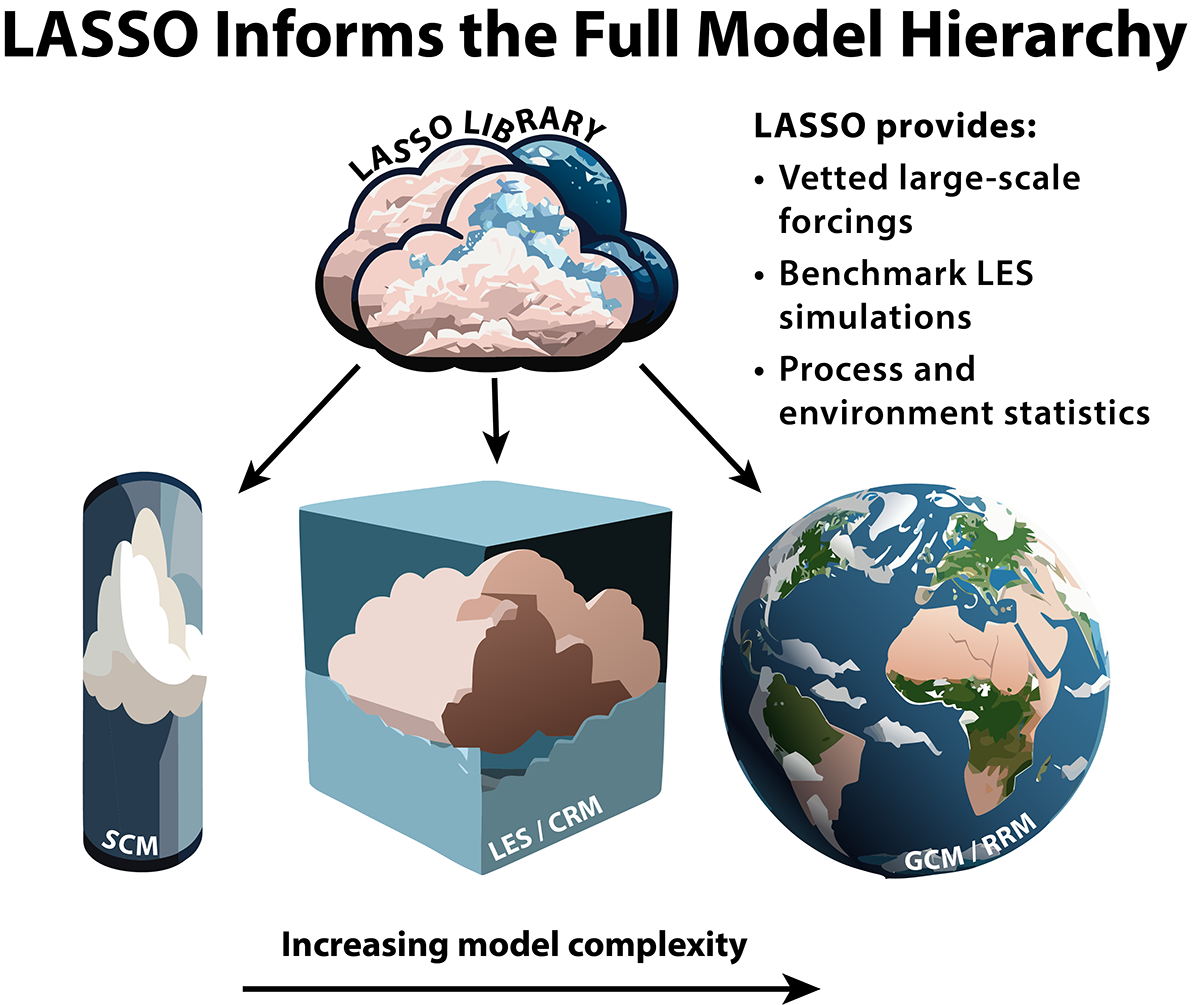Future of LASSO Workshop Report Available for Download
Published: 26 July 2024
Editor’s note: William Gustafson, principal investigator (PI) for the Large-Eddy Simulation (LES) ARM Symbiotic Simulation and Observation (LASSO) activity, provided the following blog post.
The DOE ARM Future of LASSO Workshop Report is now available for download.

Fifteen experts met in person on November 2 and 3, 2023, in concert with 36 virtual attendees, for the Future of LASSO Workshop at the National Center for Atmospheric Research in Boulder, Colorado. The workshop focused on evaluating the current state of LASSO, how users engage with LASSO and the value gained through the LASSO products, and what LASSO should prioritize for the future.
The report highlights multiple highly valued aspects of LASSO. These include the extensive effort and resources that ARM provides to the community, enabling novel investigations by research groups that would otherwise not be undertaken. Also, LASSO moves beyond the single-case, “golden-day” mindset by broadening the scope of days included in the simulation suites. This multi-case approach, combined with the use of forcing-based ensembles, provides more statistically robust analyses and enables a better understanding of model and process sensitivities.
Looking forward, the report documents suggestions for improving LASSO. An example includes staging rollouts of new LASSO scenarios using intermediate products, such as mesoscale simulations. This can increase user awareness, enable earlier use of the LASSO products, and provide opportunities for users to provide informed feedback for improving final versions of the data products.
Participants squeezed many energetic discussions into the short meeting with more time needed to fully explore them. Recurring topics to note include the representativeness of the LASSO simulations and the impact of selection bias in interpreting science based on the simulations. Another common topic was how to effectively integrate LASSO into development and testing of large-scale models, such as DOE’s Energy Exascale Earth System Model (E3SM).
Check out the report for more information on these and other topics.
Even though the workshop has come and gone, the opportunity to provide feedback and suggestions to the LASSO team is not over! The LASSO developers are excited to hear from current and potential users. We want to know how we can better support your research needs with LASSO. Send your thoughts by starting a discussion on the ARM LASSO Discourse forum or by emailing William Gustafson and Scott Giangrande, the LASSO PIs, at lasso@arm.gov.
Keep up with the Atmospheric Observer
Updates on ARM news, events, and opportunities delivered to your inbox
ARM User Profile
ARM welcomes users from all institutions and nations. A free ARM user account is needed to access ARM data.


















